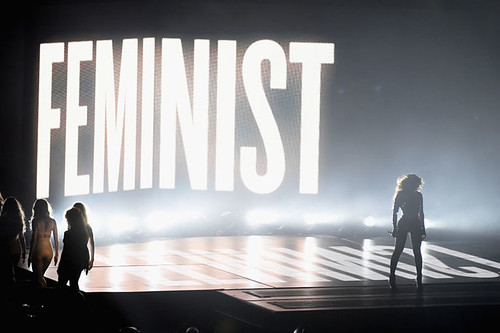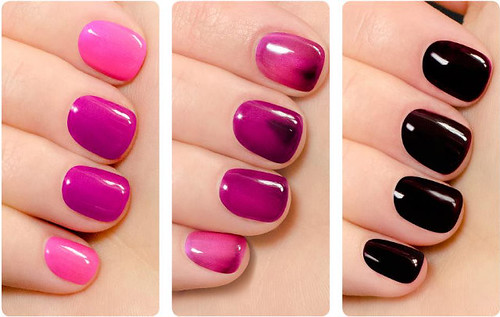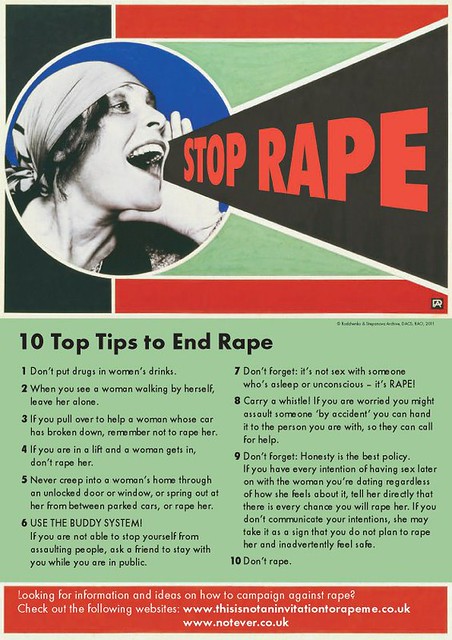
One of the ways that I define myself is as a feminist. I am someone who is deeply committed to the cause of equality, and all of the things that go along with that - equal pay for equal work; adequately representing the voices of women in all aspects of culture, from politics to the media to religion; promoting respect for women's bodily autonomy; not elevating one gender or set of gendered characteristics over another; not forcing people to conform to gender norms that may be stifling or constraining to them.
In some ways, the feminist movement, as it exists here in the US, is a deeply idealistic one, even though it can also be very cynical and pessimistic. Although that may sound contradictory, I think the two emotions go hand it hand. We're cynical and pessimistic because it seems like every day you hear about something really terrible happening because of the way that gender works in our society. A woman is brutally assaulted by her MMA fighter ex-boyfriend, but social media is flooded with people saying that she shouldn't be surprised because that's the kind of guy she went for, or somehow deserved it because she did porn. In Georgia, an ex-cop, who was convicted of raping a woman and even threatened to literally penetrate her with his gun, just got his gun rights back. In South Carolina, which has one of the highest rates of domestic violence in the country, only 18 counties out of 46 have shelters for women seeking to escape abusive relationships. In Texas, the governer is fighting measures that will make sure prisons are adequately staffed in order help end sexual assault there because he says it costs too much money.
The idealistic impulse in feminism manifests itself in the way that we talk about what has to be done about all of these things. Real change can't occur until there is a massive shift in the way that we think and talk about gender in our society; anything else just feels like a bandaid, a stopgap measure that is only designed to react to a problem, not actually fix it.
Yesterday my boyfriend sent me a link to an article that he was critical of: "Why is it easier to invent anti-rape nail polish than it is to stop rapists?" I will admit, the headline is a little misleading; of course it's easier to invent a thing that reacts to a chemical compound than it is to change the way an entire culture thinks about sex, consent, and rape. He felt like the author was far too critical of the guys who invented the nail polish, and that given that we live in a society where rape is a real possibility that women have to contend with, any tools that they can use to help prevent it should be applauded.

In a way, I guess I agree with that. There are certain things that I do, or have done, that make me feel safer. I used to carry pepper spray on a regular basis, and it's still kicking around in a drawer somewhere. In my post about street harassment, I mentioned that I may or may not react in a certain way to being catcalled because I don't know what the repercussions might be.
On the other hand, I understand what the author was trying to say. It's the idealism in play - what kind of world do we live in that women feel like they have to arm themselves with roofie detecting nail polish in order to feel safe? How is that different from the other "rape prevention" techniques and devices that have been recommended over the years? That's included everything from from a condom you can leave in that basically has built in vagina dentata (side note, the movie Teeth is actually pretty awesome and you should watch it), to pissing on yourself if someone is trying to rape you because then they'll be grossed out and stop, to not going out and drinking or "dressing like sluts." It's not that the nail polish or the impulse behind it are necessarily bad, but it feels like yet another burden that women have to take on to prevent bad things from happening to them.

Of course, the world that we live in is this one. Is it merely pragmatic to accept that, while the only person to blame for a rape is the rapist, the are certain things that women can do that might diminish their risk? It seems like that just leads back to victim blaming.
If we accept the statement that there are things that women can do to keep from being raped, the logical conclusion would seem to be that if you are raped, you must have done something wrong. The tendancy to do that in our society is already so strong. Rape cases don't make it to trial very often, and when they do, victims have to be prepared to answer questions about what they were wearing, if they were flirting with their assailant, and details about their sexual history. Defense lawyers wouldn't ask these kinds of questions if the answers, irrelevant though they are, didn't result in acquittals.

The best anti-rape campaign that I've ever seen.
I want to have discussions with people about the problems in our society. Rape is the one that's foremost on my mind right now because of this article and because of Slutwalk, but I will argue with people about birth control, abortion, domestic violence, racial discrimination, and inequality in all its forms. What I don't want to do is alienate the people that I'm having these discussions with, or shut the conversation down without hearing them out. The thing is, I'm absolutely convinced that I'm right about these things; I don't argue positions I don't believe in, unless I'm trying to play devil's advocate. Sometimes, that level of passion is an asset, and I feel like I've definitely brought people around, or at least worn them down, by finding different ways to explain things to them, coming up with different metaphors and analogies and questions to try and give them an "a-ha" moment.
Sometimes, though, people have told me that they feel like I'm shouting them down, and that I'm not listening to what they have to say. That's something that I do regard as a failing on my part. How can you expect people to listen to you and respect what you have to say if you don't give them the same courtesy? I want to help change the way that people see the world, not close their minds to what I have to say by bludgeoning them with rhetoric.
This isn't intended as a criticism of other feminists - there are so many terrible injustices in this world that should make me angry, and do. But there's definitely a time and a place for that anger, and I think every person has to decide for themselves when and where that is. For me, I'm just trying to bring things down a notch in my personal life, with the people that I love and respect.

Very, very good post. I sincerely appreciate your candor and that you acknowledge the sense of anger that is often very commonplace in more recent waves of feminism in particular. Anger has its own valid place and time, but when it comes to having important, rational conversations on some of the most pressing and impactful topics in society today, it's usually best to try and come across (and have) a level head and an open mind. Major kudos to you for actively trying to consciously come at the topics you're passionate about in such a manner. The world would be a lot, lot more saner, better place if more people followed your lead.
ReplyDelete♥ Jessica
Thank you, that's really kind of you to say. Sometimes it can feel a little juvenile to think that I can try to change things, and of course, anything that I manage to do is probably going to be very small. But the world is built on incremental change, and being able to talk to my friends and family in a way that could potentially convince them to see things in a different light seems like a worthwhile goal.
DeleteAbout the nail polish first. I think it is a brilliant idea, and good on them for inventing it. Here's how I see it. Yes, it is terrible that rape exists, and it would be much nicer if we could change that. But that is a major cultural issue. One person can do their bit for changing that culture, but they can't do it alone. Whereas one person (ok probably a group of people, but still a small number) can invent something to help women stay safe. So of course they should. And it's awesome that they did.
ReplyDeleteAbout anger, I think it is extremely difficult to stay calm discussing something that has such an emotional impact on us to discuss. I don't think I have these conversations much, but I wouldn't cope with them well if I did. There are some issues that just bring such a strong response to the surface that it becomes hard to keep our rational self in control of what we say. It is a good idea to try though, if that is what it takes to be heard.
You should never stop trying to think you can change things. I have other issues that I champion quietly to my friends and family, just by discussing my own reasons and choices (e.g. ethical fashion and some ethical food issues), and it has had some impact on those around me, and that makes me happy.
That's great that you have causes that are important to you that you can bring up with your family. Ethical fashion and ethical food are both really important environmental issues, and they're the sort of small changes that people can make in their lives that can make a big impact in the world.
DeleteThat's great that you have causes that are important to you that you can bring up with your family. Ethical fashion and ethical food are both really important environmental issues, and they're the sort of small changes that people can make in their lives that can make a big impact in the world.
DeleteWow! Super excellent post! You have no idea how great this was to read for me, and surprisingly how relevant for my life right now, regarding when and where to speak up with my beliefs and feminist ideals. I find this pressure in my work place, surprisingly. I appreciate that not everyone had the privilege I had by getting a liberal arts education, and I certainly don't expect someone who's never been exposed to feminist issues or theory to always understand the implications of what they do or say (ie: double standards between sexes, heteronormativity, gendered speech). A male workmate of mine recently said he didn't get why so many celebrities were calling themselves feminists, and when I said that I identified as a feminist he literally looked at me with such disdain and condescendingly replied, "you ARE?" We had a long, frustrating talk about the need for Feminism in society. I was actually pleased with how well he responded in the end, but still. I wish that people were taught early on about the need for gender equality in school, as it would lead to discussion about so many other interconnected issues.
ReplyDeleteGreat to see so much discourse and dialogue about feminism on the 'net! Thanks.
Thank you! I'm glad that this meant something to you. It always kind of surprises me when someone in my life says something negative about feminism - it's like, "have you really thought this through?" And, in fact, they usually haven't. I'm happy to hear that your coworker came around a little bit.
Delete